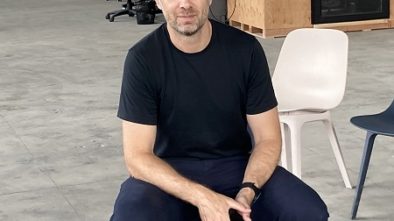Remembering John Ason, NJ-Based Angel Investor Who Shared His Philosophy Unselfishly
New Jersey-based angel investor John Ason passed away suddenly in Hong Kong on November 7.
He was doing what he loved best — speaking at a conference with entrepreneurs and helping develop angel investing ecosystems, said his wife, Judith Sheft, associate vice president at the New Jersey Innovation Institute (Newark), who is also a beloved member of the New Jersey tech ecosystem.
First, I’d like to express my condolences to Judith and their children, and to the many friends John made over the years.
I remember John as someone who had a wonderful enthusiasm for tech innovation and for the founders who made it happen. We often talked about the new companies he had found as he traveled all over the world. And he often quizzed me about any great startups I had seen as I traveled the state to tech conferences and meetups.
John spoke at many conferences and meetings about how much he enjoyed doing what he did, and he loved sharing his methods for investing and his expertise to angels and founders alike.
He was successful at his chosen profession, having made some spectacular exits — including from Diapers.com (Montclair) and LiveLOOK (Matawan).
He sought out founders who were decisive and who could execute quickly. “We want to see you execute first, and it’s important for me to see you make decisions quickly. When you need to change something, we don’t want you to take six weeks or three months to figure out what you need to do. If you can’t make a decision very quickly, you can’t be a startup. Time is the most expensive thing you have.”
In 2014, speaking to a room full of startup founders at an New Jersey Entrepreneurial Network event, Ason shared his belief that startups shouldn’t be afraid of working with larger companies.
“I like to ask a startup who their main strategic competitors are, the people who can blow them out of the water. And then I tell the startup to sell to them or to tell the bigger company their idea,” he said.
“The reason is the following: They can’t possibly compete with you. Their cost of doing business is too high (about 10 to 20 times your cost of doing business). They have legacy systems, they need sign-offs, they have to fit this innovation within their budget cycle. … It will take them three to five times as long to develop a product to compete with yours. They are afraid of you.”
They won’t steal your idea, Ason said, presenting a scenario of a big company with 100 little “rat” startup companies nipping at its heals.
“If you are rat #73, it’s unlikely that they will stop [what they are doing] in order to crush you. No V.P. ever got promoted for crushing rat #73.”
A big company that has something in the works similar to your idea will cancel their R&D. If they really want your idea, they will find that it is cheaper to buy your company than to develop the idea themselves, he concluded.
At the Montclair Entrepreneurs Meetup in April 2015, Ason talked about the analogy, popularized by a Columbia University study, that placed founders, VCs and angel investors into one of two categories: “foxes” and “hedgehogs.”
Foxes are generalists, willing to take risks. Hedgehogs are investors who are vertical or industry-specific and could do one thing extremely well.
The idea of the fox and hedgehog categories goes back to ancient Greece, where the poet Archilochus said, “The fox knows many things, but the hedgehog knows one big thing.” And it was popularized in 1953 by writer and philosopher Isaiah Berlin.
Ason said that these terms applied just as well to entrepreneurs. “The ones who create new markets or disrupt markets are foxes,” and the ones who improve the functions of markets in which they specialize are hedgehogs.
Early-stage investors and micro VCs can be foxes. Micro VCs act like angels, and do 50 to 60 deals a year, he said. Among the hedgehogs, according to Ason, you’ll find mostly angels, along with angel groups and companies, that do follow-on financing in areas they know well.
The Columbia study found that foxes get funded by foxes, and hedgehogs get funded by hedgehogs. “There is very little crossover,” said Ason, who admonished his listeners that they’d “better target the right person from the beginning.”
If you are a fox, he said, any fox will do because we are all generalists. “If you are a hedgehog, you have to find someone in the angel world who knows your industry or your vertical.”
Series-A VCs, who are hedgehogs, have decreased in number over the last several years by 50 or 60 percent, Ason noted. “One of the reasons is that it is easy to start a company and cheap to continue growing it.”
John meant a great deal to his friends and family and to the broader tech ecosystem. He will be missed.




